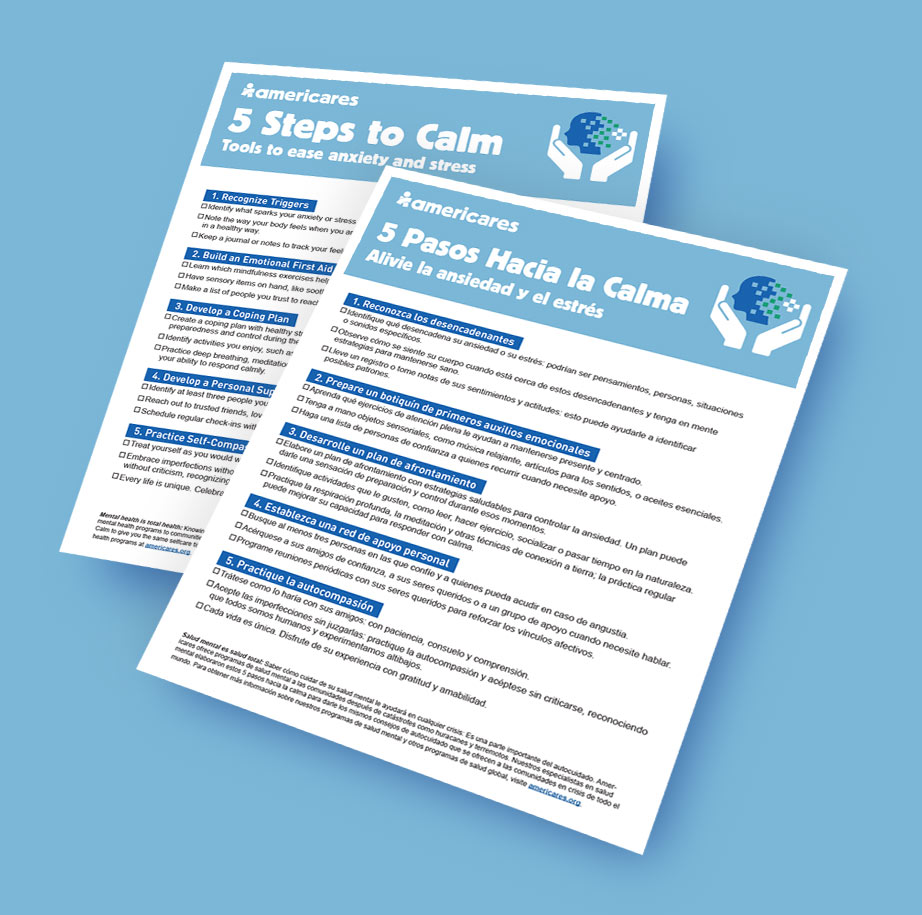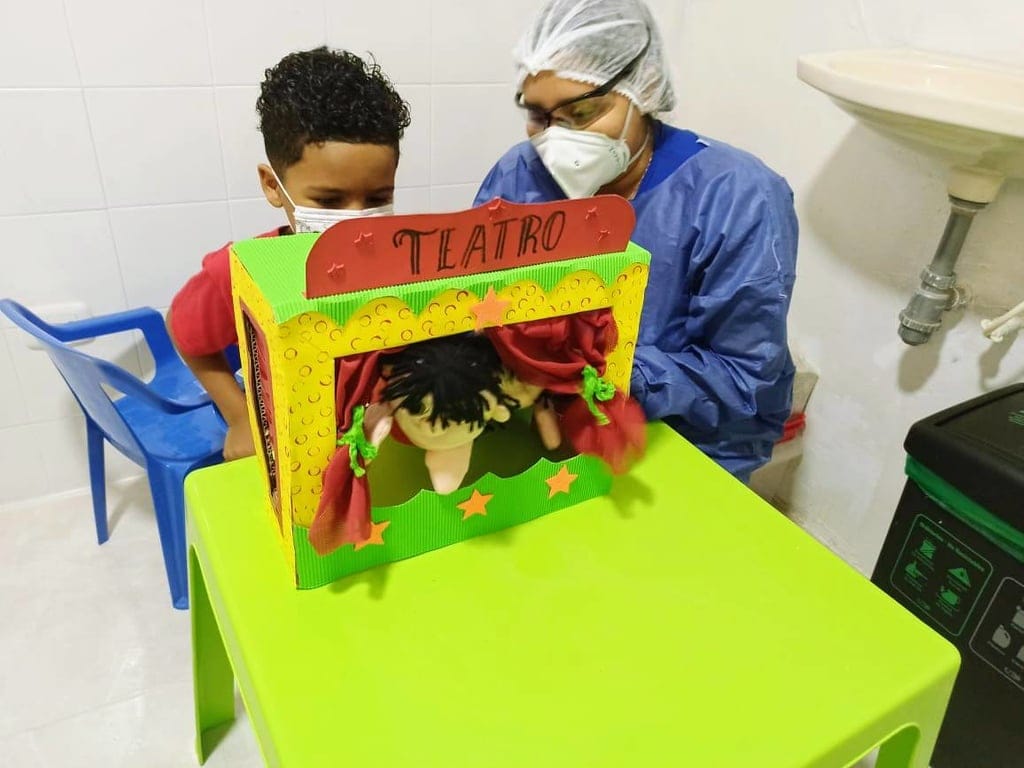
“There cannot be health without mental health.”
-Former UN Special Rapporteur Dr. Dainius Pūras
Mending minds, rebuilding whole human health.
Operating across emergency and non-emergency contexts, Americares plays a crucial role. In disaster-stricken communities, where houses and hospitals crumble and lives are lost, the impact extends beyond physical damage. Trauma and stress ripple through the community, hitting health workers particularly hard. Addressing mental and physical health together is imperative, as long-term consequences linger even after the crisis wanes.
Americares steps up by building capacity, training, technical advice, and clinical care to meet this global challenge. Furthermore, our reach extends beyond emergencies – we’re dedicated to supporting clinics and healthcare workers worldwide, with a special focus on those serving uniquely vulnerable populations.
Working with local communities, we strive to help the helpers by enhancing existing health care systems and training health care workers to identify signs of stress and trauma after a disaster. Then we work to assess, collaborate, and ultimately co-create programs that are sustainable, culturally sensitive and resilient, effectively serving each unique community.
In Colombia and El Salvador, Americares provides clinical mental health services for our patients. Our providers treat a variety of health issues, including anxiety, stress and loss.
At Americares Colombia clinics, Venezuelans driven by violence, instability and extreme food and medicine shortages face risks to their mental well-being. Our providers ensure patients receive mental health support. Since August 2018, Americares has conducted more than 990,000 primary care and mental health consultations in Colombia. Approximately 15 percent of the total primary care consultations were focused on mental health issues, such as PTSD, depression and anxiety.
Experience a story of the “caminantes” – the migrants arriving in Colombia, often on foot, seeking health care, food, shelter and a little hope. Click on the video and meet “Colombia Caminantes”
After providing health care amid bombing and violence, health workers can experience stress and trauma, putting them at risk for illness. And providers caring for patients who have experienced violence or stress are at higher risk of vicarious trauma. Americares trains medical staff caring for Syrians in Syria and in bordering countries to recognize and alleviate signs of stress in themselves and their co-workers.
In Jordan, Americares continues to work with the Royal Health Awareness Society to add mental health services to an existing chronic disease program. Now Syrian refugees—and Jordanians—can better manage their stress and, consequently, their chronic health conditions.
Click on the video from Jordan to share the story of war refugees who seek chronic disease care and find support for whole human health.


Creating a personalized plan to manage anxiety and stress involves a combination of strategies that cater to your unique needs and preferences. Here are some tips to help you develop an effective plan.

Knowing how to support your mental health will help you in any crisis. It’s an important part of self care. Here are some tips our specialists provide to communities in crisis all over the world

When disaster strikes, Americares has a history of “hitting the ground listening.” In Japan after the triple disaster of 2011, in the central and southern US after the 2021 deadly tornadoes, to present day with the war in Ukraine, we have encountered a great need for mental health support that is often overshadowed by the huge physical needs of communities in crisis.
During an emergency response, we begin by addressing immediate needs, such as emotional support and basic coping skills. Over time, this approach evolves into a comprehensive mental health program tailored to the unique needs of communities. This program incorporates ongoing support, community involvement, and specialized services.
As each disaster and response is unique, our mental health and psychosocial support services offer multifaceted interventions and culturally competent care. We always ensure that we respect and properly adapt to the cultural and emotional identities of the communities we assist, striving to provide the highest level of care possible.
Wherever we go, we try to find the community way to whole human health. For example:
In Colombia (since 2018), health workers used puppets and face painting for children
In Ukraine/Poland (since 2022), we support local organizations who lead the way in providing mental health care for their own communities
In Nepal, (2015) community health workers organized and improvised street theater to bring people out of their homes to gather and share their feelings
In Japan, (2011) volunteers organized community gardening for families who lost homes, loved ones and hope
In Philippines, (ongoing) local health care workers are trained to identify mental health needs in vulnerable communities
In Houston, Texas, (2017) local teams supported a variety of approaches to the extreme trauma from Hurricane Harvey, including yoga, art therapy and group workshops






